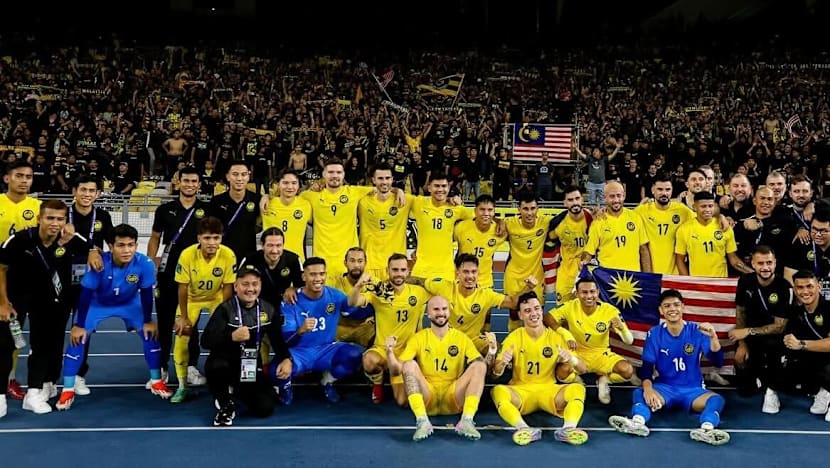World
FIFA’s Fraud Scandal Forces Political Reckoning in Malaysia

KUALA LUMPUR: A document fraud scandal involving the Malaysian football team has prompted significant political repercussions. The controversy centers on the fielding of ineligible foreign-born players, leading FIFA to impose a fine of 350,000 Swiss francs (approximately US$437,000) on the Football Association of Malaysia (FAM). This situation has intensified scrutiny on Prime Minister Anwar Ibrahim‘s government regarding its citizenship policies, which have long been a contentious issue in the country.
The scandal erupted on September 26, 2023, when FIFA announced sanctions against Malaysia due to the use of forged or falsified birth certificates by the FAM and the players to secure eligibility for the national team. As a result, FIFA banned seven foreign-born players who had recently acquired Malaysian citizenship. The opposition, led by Takiyuddin Hassan of the Perikatan Nasional coalition, has called for a Royal Commission of Inquiry (RCI) into the matter, asserting that this is not simply an administrative error but rather a deliberate act of fraud.
“This is not a technical mistake, but a deliberate act of fraud,” Takiyuddin stated, emphasizing the need for an investigation into the roles of various government bodies, including the National Registration Department (JPN) and the Ministry of Home Affairs. Elected officials from Anwar’s own Pakatan Harapan coalition are also advocating for parliamentary debates on the matter, as football enjoys immense popularity in Malaysia.
Home Affairs Minister Saifuddin Nasution Ismail defended the government’s actions, stating that all foreign players received citizenship after a thorough process compliant with the constitution. He reiterated that the eligibility of the players is a matter between FIFA and FAM, but did not address how the government plans to respond to FIFA’s findings regarding the use of forged documents.
FIFA’s decision, published on October 6, characterized the FAM’s actions as “a form of cheating, which cannot in any way be condoned.” The implications of this scandal extend beyond football, as it raises serious questions about the integrity of the citizenship process in Malaysia.
Political Implications of the Scandal
The fallout from the scandal is beginning to affect Malaysia’s political landscape. The country has strict citizenship requirements, which have fueled ongoing debates about statelessness and the difficulties faced by children born to unmarried parents. As of recent reports, the Home Ministry has received approximately 49,000 applications for citizenship, with around 6,000 still pending. Since 2018, 23 foreign players have been granted citizenship, including the seven sanctioned players.
The citizenship issue is particularly sensitive in the East Malaysian state of Sabah, where political dynamics are complex and fraught with historical tensions. Anwar’s government faces skepticism from Sabahans, many of whom distrust him due to allegations from his time as deputy prime minister when he was implicated in controversial citizenship policies aimed at altering the region’s demographics.
“The scars from Project IC are still fresh with many Sabahans, and citizenship could become an electoral issue,” noted a senior politician from Parti Bersatu Sabah, a party representing the Kadazan community in the state. This political backdrop adds another layer of gravity to the scandal, particularly with state assembly elections on the horizon.
The Future of Malaysian Football
Historically, Malaysia’s national football team enjoyed significant success, ranking among the best in Asia during the 1970s and early 1980s. However, the sport’s reputation has suffered due to match-fixing scandals in the 1990s, leading to a long decline. Recent years saw a gradual improvement, with Malaysia’s FIFA ranking rising to its highest position of 123rd in September 2023 after aggressive recruitment of foreign players under FIFA’s naturalisation rules.
The heritage player program, championed by the crown prince of Johor, Tunku Ismail Sultan Ibrahim, aimed to bolster the national team by allowing foreign players with Malaysian ancestry to represent the country. In June 2023, seven players from various countries, including Brazil and Spain, were naturalised and participated in an Asian Cup qualifying match.
However, following a complaint regarding the eligibility of these players, FIFA’s investigation revealed the use of falsified documents, resulting in the current scandal. FAM has indicated its intention to appeal FIFA’s decision, but the appeals process could take time and may not yield a favorable outcome.
The repercussions of this scandal may extend beyond FIFA, as the Asian Football Confederation (AFC) has indicated it will conduct its own investigation once FIFA’s disciplinary process concludes. Should the AFC confirm violations, Malaysia risks disqualification from the 2027 Asian Cup, further damaging the country’s football reputation.
As the situation unfolds, the Malaysian football community, alongside the political landscape, will be watching closely to see how the Anwar government navigates this crisis and if it can restore credibility to both the sport and its citizenship policies.
-

 Business5 months ago
Business5 months agoKenvue Dismisses CEO Thibaut Mongon as Strategic Review Advances
-

 Lifestyle4 months ago
Lifestyle4 months agoHumanism Camp Engages 250 Youths in Summer Fest 2025
-

 Sports4 months ago
Sports4 months agoDe Minaur Triumphs at Washington Open After Thrilling Comeback
-

 Sports5 months ago
Sports5 months agoTupou and Daugunu Join First Nations Squad for Lions Clash
-

 Top Stories5 months ago
Top Stories5 months agoColombian Senator Miguel Uribe Shows Signs of Recovery After Attack
-

 World5 months ago
World5 months agoASEAN Gears Up for Historic Joint Meeting of Foreign and Economic Ministers
-

 Health4 months ago
Health4 months agoNew Study Challenges Assumptions About Aging and Inflammation
-

 Business5 months ago
Business5 months agoOil Prices Surge Following New EU Sanctions on Russia
-

 Entertainment4 months ago
Entertainment4 months agoDetaşe-Sabah Violin Ensemble Captivates at Gabala Music Festival
-

 Entertainment4 months ago
Entertainment4 months agoBaku Metro Extends Hours for Justin Timberlake Concert
-

 Top Stories5 months ago
Top Stories5 months agoRethinking Singapore’s F&B Regulations Amid Business Closures
-

 Business5 months ago
Business5 months agoU.S. House Approves Stablecoin Bill, Sends to Trump for Signature









